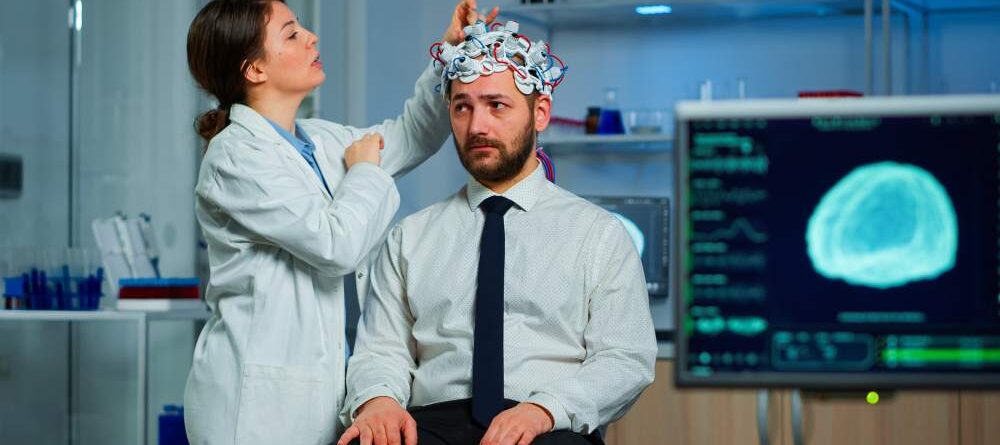Functional Neurosurgery: Improving Quality of Life Through Precise Intervention
Functional neurosurgery is a specialized field within neurosurgery that focuses on the surgical treatment of neurological disorders that affect a patient’s ability to function and perform daily activities. These disorders may include movement disorders, epilepsy, chronic pain, and psychiatric conditions that are not responsive to traditional medical therapies. In Malaysia, neurosurgeons specializing in functional neurosurgery play a crucial role in improving the quality of life for patients by performing precise surgical interventions aimed at restoring normal brain function. This article aims to explore functional neurosurgery and how a neurosurgeon (Malaysia) performs such surgeries.
Understanding Functional Neurosurgery:
Functional neurosurgery involves the use of surgical techniques to modulate or alter the activity of specific neural circuits in the brain or nervous system. These surgical interventions are aimed at improving or restoring normal brain function and alleviating symptoms associated with neurological disorders. Some common conditions treated with functional neurosurgery include:
1. Movement Disorders:
– Parkinson’s Disease: Functional neurosurgery techniques such as deep brain stimulation (DBS) can help alleviate symptoms of Parkinson’s disease, including tremors, rigidity, and bradykinesia (slowness of movement).
– Essential Tremor: DBS can also be used to treat essential tremor, a neurological disorder characterized by uncontrollable shaking of the hands, head, or other parts of the body.
2. Epilepsy:
– Medically Refractory Epilepsy: Functional neurosurgery techniques such as vagus nerve stimulation (VNS) or responsive neurostimulation (RNS) can help reduce the frequency and severity of seizures in patients with medically refractory epilepsy.
3. Chronic Pain:
– Trigeminal Neuralgia: Functional neurosurgery techniques such as microvascular decompression (MVD) or stereotactic radiosurgery (SRS) can help alleviate pain in patients with trigeminal neuralgia, a chronic pain condition affecting the trigeminal nerve.
4. Psychiatric Disorders:
– Obsessive-Compulsive Disorder (OCD): Functional neurosurgery techniques such as deep brain stimulation (DBS) or anterior capsulotomy can help alleviate symptoms of OCD, including intrusive thoughts and compulsive behaviors.
How a Neurosurgeon in Malaysia Performs Functional Neurosurgery:
1. Preoperative Evaluation:
Before performing functional neurosurgery, a neurosurgeon in Malaysia will conduct a comprehensive preoperative evaluation to assess the patient’s condition and determine the most appropriate treatment approach. This evaluation may include:
– Review of the patient’s medical history and symptoms.
– Physical examination, including neurological and psychiatric assessments.
– Neuroimaging studies such as MRI or CT scans to identify the location and extent of the neurological disorder.
– Neuropsychological testing to assess cognitive function and determine the impact of the disorder on the patient’s quality of life.
2. Surgical Planning:
Based on the results of the preoperative evaluation, the neurosurgeon will develop a surgical plan tailored to the patient’s specific needs and goals. This may involve:
– Identifying the target area within the brain or nervous system that will be the focus of the surgical intervention.
– Determining the most appropriate surgical technique and approach to access the target area.
– Using advanced neuroimaging and neurophysiological techniques to precisely locate the target area and minimize the risk of complications.
3. Surgical Procedure:
The surgical procedure for functional neurosurgery in Malaysia typically involves the following steps:
– Anesthesia: The patient is placed under general anesthesia to ensure comfort and safety during the procedure.
– Stereotactic Frame Placement: A stereotactic frame may be attached to the patient’s head to provide precise guidance and localization during the surgery.
– Target Localization: Using advanced neuroimaging techniques such as MRI or CT scans, the neurosurgeon precisely identifies the target area within the brain or nervous system that will be the focus of the surgical intervention.
– Implantation of Stimulating Electrodes: For procedures such as deep brain stimulation (DBS), the neurosurgeon implants stimulating electrodes into the target area of the brain. These electrodes are connected to a pulse generator (neurostimulator) that is implanted under the skin near the collarbone.
– Programming and Testing: After implantation, the neurostimulator is programmed to deliver electrical impulses to the target area of the brain. The patient is awake during this part of the procedure so that the neurosurgeon can test the effectiveness of the stimulation and adjust the settings as needed.
– Closure: Once the electrodes are implanted and the neurostimulator is programmed and tested, the incisions are closed, and the surgical site is bandaged.
4. Postoperative Care:
After the surgery, the patient will be closely monitored in the hospital for a period of time to ensure a safe and smooth recovery. The neurosurgeon will provide instructions for postoperative care and follow-up appointments to monitor the patient’s progress and adjust the stimulation settings as needed.
Benefits of Functional Neurosurgery in Malaysia:
1. Improved Quality of Life:
Functional neurosurgery in Malaysia can significantly improve the quality of life for patients with neurological disorders by alleviating symptoms and restoring normal brain function.
2. Minimally Invasive Techniques:
Many functional neurosurgical procedures in Malaysia are minimally invasive, resulting in shorter hospital stays, faster recovery times, and reduced risk of complications.
3. Multidisciplinary Approach:
Neurosurgeons in Malaysia work closely with other medical specialists, including neurologists, psychiatrists, and neuropsychologists, to provide comprehensive care to patients undergoing functional neurosurgery.
4. Advanced Technology:
Malaysia boasts state-of-the-art medical facilities and advanced technology, providing neurosurgeons with the tools and resources they need to deliver high-quality care to patients undergoing functional neurosurgery.
Conclusion:
Functional neurosurgery is a highly specialized field within neurosurgery that aims to improve the quality of life for patients with neurological disorders. In Malaysia, neurosurgeons perform a wide range of surgical procedures to treat conditions such as movement disorders, epilepsy, chronic pain, and psychiatric disorders. With their expertise, experience, and access to advanced technology, neurosurgeons in Malaysia are able to provide patients with the highest level of care and improve outcomes for those undergoing functional neurosurgery.










Leave a Reply